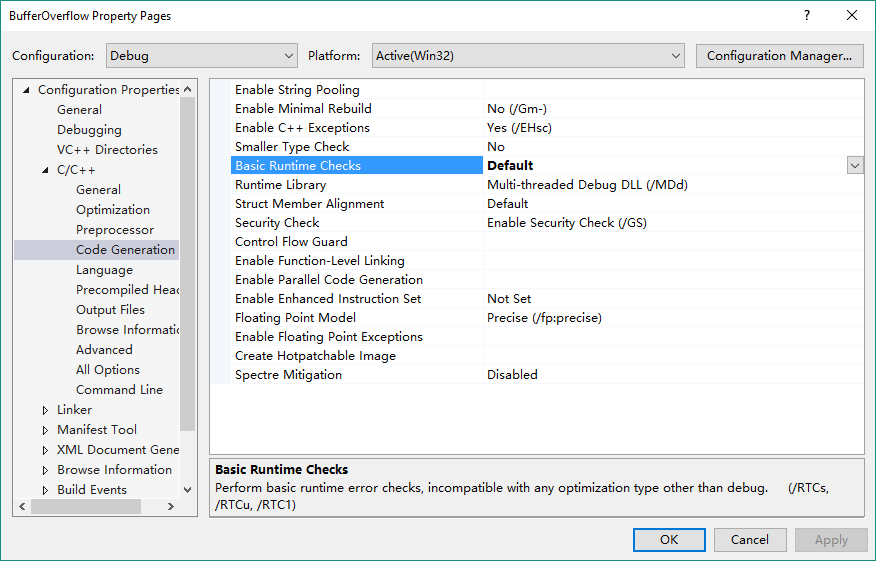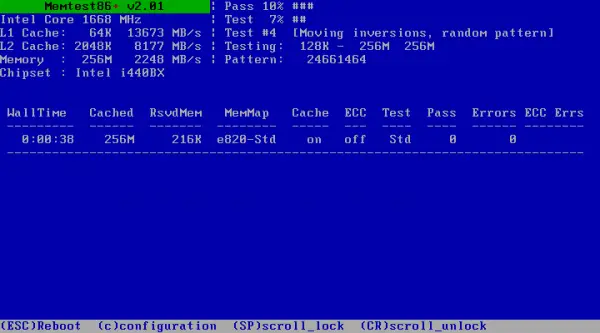
- Windows afd buffer default code#
- Windows afd buffer default free#
- Windows afd buffer default windows#
PriorityBoostĭescription: The priority boost that AFD gives to a thread when it completes I/O for that thread. The default is one page, and the intention is to properly charge and contain attacker type applications that try to run the system out of memory. OverheadChargeGranularityĭescription: This parameter determines in what increments overhead is actually charged. MediumBufferSizeĭescription: The size, in bytes, of medium buffers used by AFD.ĭescription: Depth of medium buffer look-aside list. Changing this value is not generally recommended. This is advantageous for small amounts of data. Fast I/O is essentially copying data and bypassing the I/O subsystem, instead of mapping memory and going through the I/O subsystem.

MaxFastCopyTransmitĭescription: This parameter controls the maximum size of data that uses copy instead of cached memory on the fast-path. MaxFastTransmitĭescription: This parameter controls the maximum amount of data that is transferred in a TransmitFile request on the fast path. This value is not configurable for Windows 2000 Professional. The value 0 means that it is not limited, except by system resources. Valid Range: 0–0xffff (server), 2 (workstation)ĭescription: Allows configuration of the maximum number of concurrent TransmitFile requests outstanding. Smaller values use less memory and larger values can improve performance.ĭescription: Depth of large buffer look-aside list. LargeBufferSizeĭefault: PAGE_SIZE (4096 bytes on i386, 8192 bytes on Alpha)ĭescription: The size, in bytes, of large buffers used by AFD. IrpStackSizeĭescription: The count of IRP stack locations used by default for AFD. This should only be done when necessary to work around client TCP/IP implementations that are not properly pushing data. sys to treat all incoming packets as though the push bit was set. Setting this parameter to a 1 causes Afd.
Windows afd buffer default windows#
Changing this value is not generally recommended.ĭescription: Normally, Windows 2000 completes a Windows Sockets Receive when one of the following occurs: Fast I/O means copying data and bypassing the I/O subsystem, instead of mapping memory and going through the I/O subsystem. The default value was found by testing to be the best overall value for performance. Larger ones are held until the datagram is actually sent. Changing this value is not generally recommended.ĭescription: Datagrams smaller than the value of this parameter go through the fast I/O path or are buffered on send. The default value was found, by testing, to be the best overall value for performance.


Windows afd buffer default code#
This value represents a compromise between extra code execution for data copying, and extra code execution in the I/O subsystem and memory manager. (Although this parameter still exists, the TCP stack itself has been hardened against SYN-ATTACK in Windows 2000 therefore, it should not be necessary to use this feature of AFD.) FastCopyReceiveThresholdĭescription: When an application posts a receive with a buffer that is smaller than the current packet being buffered by Winsock, AFD can either make an additional copy of the packet and then copy data to the application buffers directly (which is a two-stage copy because application buffers cannot be accessed directly under the lock), or it can lock and map application buffers and copy data once.
Windows afd buffer default free#
Be careful with this value a large value could lead to explosive free connection allocations. DynamicBacklogGrowthDeltaĭescription: Controls the number of free connections to create when additional connections are necessary. See the TCP/IP AllowUserRawAccess registry parameter. This is not used for Windows 2000 transports (like TCP/IP, which manages its own security for raw sockets), which have TDI_SERVICE_FORCE_ACCESS_CHECK set.

DisableRawSecurityĭescription: Disables the check for administrative privileges when attempting to open a raw socket. This setting allows administrators to secure older applications that are not aware of this option. A similar effect can be achieved if an application uses the new socket option SO_EXCLUSIVEADDRUSE. Description: This parameter is used to prevent address sharing (SO_REUSEADDR) between processes so that if a process opens a socket, no other process can steal data from it.


 0 kommentar(er)
0 kommentar(er)
